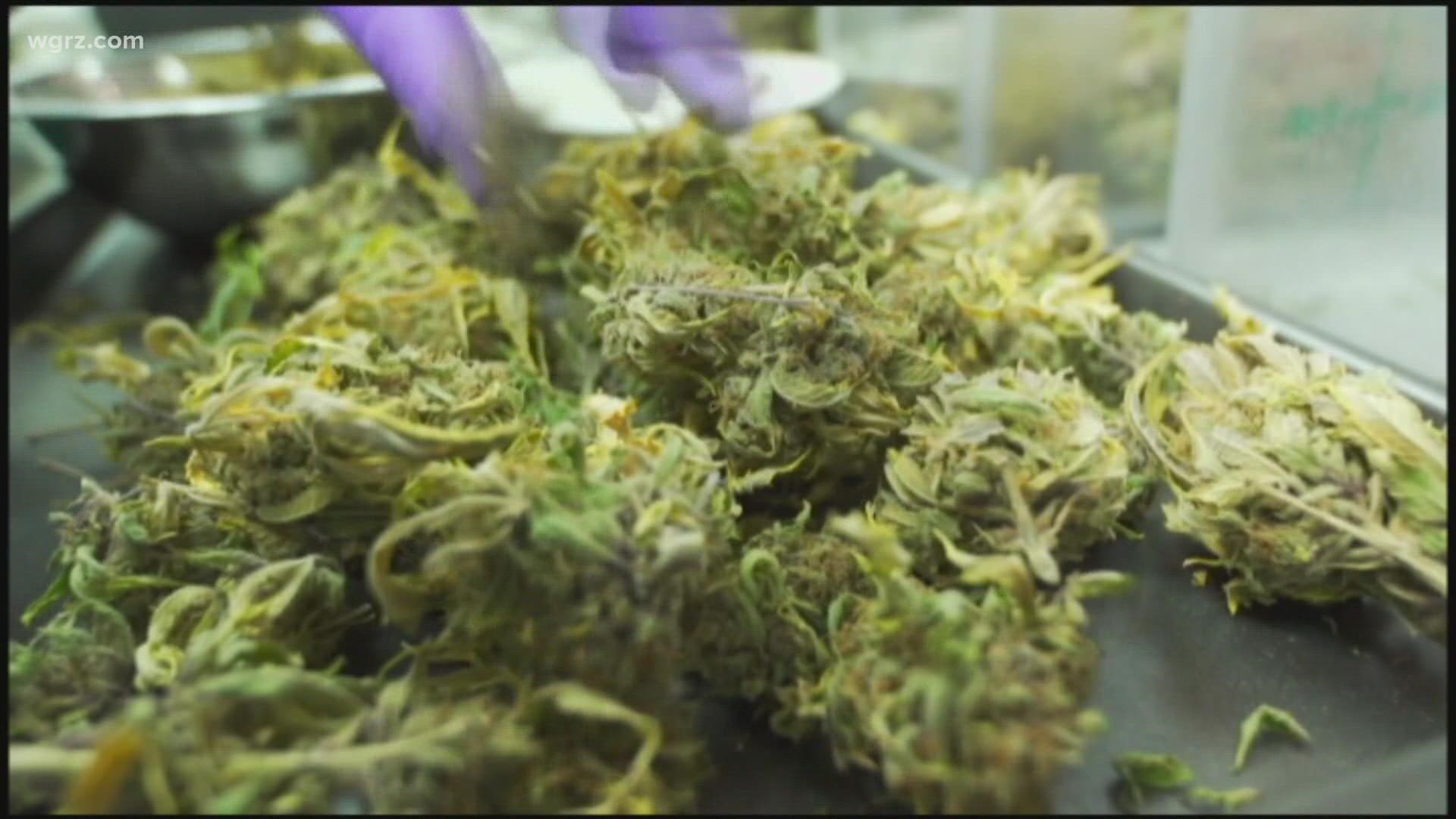BUFFALO, N.Y. — As with each passing year, 2022 will bring of a host of new laws and regulations in New York State.
While many involving recreational marijuana, mobile sports gambling, and a ban on items made of polystyrene have grabbed their share of headlines, there are many other changes, particularly those involving jobs and workplaces, which will impact state residents in the new year.
Recreational marijuana
After years of planning, state officials expect the first of the state-approved dispensaries selling legal recreational marijuana to be up and running perhaps by spring.
Municipalities had until the end of 2021 to decide if they will allow the shops within their bounds.
So far, according to the Rockefeller Institute which has been tracking this, 42% percent of the towns, villages, and cities within the state have said no to the pot shops, and a slightly larger number, 47%, have decided against allowing for consumption sites such as lounges to operate.
A number of other municipalities, including the City of Buffalo, have made no decision, which means they will automatically be "opted-in" to allowing sales.
Polystyrene containers
Effective in 2022, the use of containers made from polystyrene (commonly referred to as "Styrofoam") will be banned, in grocery stores and restaurants, which have used them for decades to serve food.
Churches who serve up fish fries and pot lucks to raise revenue, along with food pantries and programs like Meals on Wheels, which bring food to shut-ins, can, however, can apply for an exemption.
The use of polystyrene packing peanuts will also be banned.
Mobile sports betting
After years of debate, New York will join 23 other states and the District of Columbia in allowing mobile sports betting. While it is hoped that gamblers will be able to wager this way in the state by the time of the Super Bowl in mid-February, it's uncertain if the program will be up and running by then.
New York will receive 51% of the handle, or amount wagered, which according to industry experts is much higher than is common. However, in parting with that generous amount, the operators of mobile sports betting will finally have access to what has been up till now one of their potentially largest untapped markets.
On the labor front
Many of the new laws, or changes to existing ones, will affect employment and workplaces.
This includes a raise in the minimum wage under a program begun in 2016 to eventually bring it to $15 per hour statewide.
This has already been accomplished in New York City and will be the reality in Westchester County and on Long Island in 2022.
However, in the rest of the state including Western New York, the new minimum wage will be $`13.20 per hour, which is a 70-cent increase over 2021.
There are also changes of note to the state's paid family leave program. New Yorkers, provided they have put in the timed work requirement, are eligible for up to 12 weeks of paid family leave at a rate of 67% of their weekly income with a maximum amount of $1,068 per week. That ceiling will be $97 per week higher than it was in 2021.
In addition, New Yorkers will now be eligible to take paid family leave to care for an ill sibling, which was a category of family member previously not included in the program.
Also in 2022, employers will have to inform workers they hire up front if their internet, email and phone usage is being electronically monitored.
The state is also broadening of its whistleblower protection laws.
Currently, New York's statute only protects workers who report unlawful practices by their employer which create substantial and specific danger to "public health and safety."
This will be expanded to protect employees from retaliation for reporting any actual or suspected violation of law, and will expand that protection to former employees and independent contractors who bring these to light.
IN another change, companies with at least 10 employees, and who've been in business in the state for at least two years, but who don't sponsor their own retirement savings plan for employees will have to automatically enroll employees in a state-run savings plan.
Crime and punishment
Almost as soon as the COVID-19 vaccine became available in late 2020 and when the first vaccination cards offering proof of having gotten the shot were issued, there were warnings that those making, selling, or possessing fake cards could be subject to federal charges.
Under a new law for 2022, this is formally becoming a state crime as well.
Meanwhile, for those incarcerated in New York State prisons, effective April 1 solitary confinement will be limited to no more than 15 days and will be banned entirely for minors, those over age of 55, pregnant inmates, and those with disabilities.
No extra fees for Fido
In a change that could effect certain pet owners, insurance companies will no longer be allowed to charge more, or deny homeowners or rental coverage based on the breed of dog they own, in particular those which are reputed to be aggressive.

